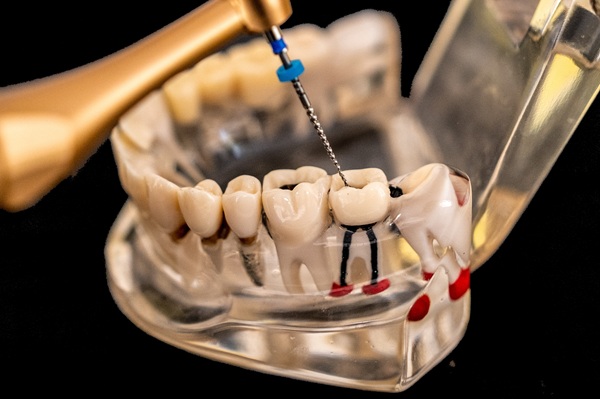Apicoectomy vs Root Canal Therapy – What Is the Difference?

A root canal and apicoectomy are the two endodontic procedures that can save a tooth. Between the two surgeries, the root canal is the more common one. One will only get an apicoectomy if a root canal fails. If you want to know the difference between a root canal and an apicoectomy, here are the facts.
Root canal procedure
This procedure can restore a damaged tooth. Once the damage reaches the pulp of the tooth, infection will start to invade the tooth. Tooth decay and accidents are primary causes of pulp infection. If the structure of the tooth is still intact, the endodontist will perform a root canal. The endodontist will numb the area first with a local anesthetic.
Then, the endodontist will drill a small access hole in the center or the affected tooth. The endodontist will start to clean out the infected pulp with a special dental tool. Disinfection of the dental space will follow. Then, the endodontist will fill the tooth with gutta-percha. This filling material will also seal the access hole. If it is necessary, the endodontist will place a dental crown over the tooth to protect and strengthen it.
It is rare for the infection to persist after the root canal. If this happens, the endodontist will perform another root canal procedure. In other cases, hard deposits of calcium can fill the pulp cavity. This makes it challenging for root canal tools to reach the canals from the surface of the tooth.
Apicoectomy procedure
This procedure is for infections on the tooth root. Before the procedure, the endodontist needs to take the complete medical history of the patient. A physical exam follows. The endodontist needs to pay attention to the medications or recent face or sinus infections. Once the procedure is set, the patient must take antibiotics, drying agents, and anti-inflammatories before going to the clinic.
The endodontist will numb the area first with a local anesthetic. Then, the endodontist will access the infection by first incising the gum tissue next to the toot. The access point may be from the bottom or from the side. An operating microscope can help view and extract the infected tissue. To reach the tooth root, the endodontist must push aside some gum tissue.
The endodontist needs to take a few millimeters from the tip. Filling the tip with biocompatible material will come next. This will seal the root. The endodontist will stitch the gum tissue back. An apicoectomy can last for half an hour to one and a half hours, depending on the complexity of the case.
After the apicoectomy, the patient can return to work the following day. Complete healing will take about two weeks. New bone will grow back around the treated tooth after several months. After three to five days, the patient must go back to the clinic for suture removal. This will take about five to 10 minutes.
Both root canal and apicoectomy can extend the life of a tooth
The first solution to an infected pulp is a root canal procedure. If this procedure fails then it is up to the apicoectomy procedure to save your tooth. These treatments may have different access points, but they both aim to remove the infected tissue in and around the tooth. Seeing an endodontist can determine which procedure can help restore the damaged tooth.
Are you considering getting an apicoectomy in the Nashville area? Get more information at https://www.sheats-endo.com.
Recent Posts
If you're wondering, "how can I find an endodontist near me?" read on to learn more. Endodontic pain, often caused by tooth trauma or root canal problems, can be disruptive and significantly affect one’s quality of life. The endodontist does the root canal treatment to ease tooth pain. When searching for “an endodontist near me,”…
Having a chipped tooth is not something that anyone wants to deal with. It can be problematic because of the treatment required. Additionally, having a chipped tooth can be painful and make it challenging to eat and even speak like normal. Fortunately, there are a plethora of resources that people can use in order to…
Breaking a tooth can be a frightening time for anyone, and not knowing whether to seek emergency dental care for the broken tooth or wait for the regular office to open can add to the stress. The good news is that broken teeth are often resilient and can usually be restored to their normal function,…
Tooth pain relief is often necessary when decay, infection, or trauma affects the inner structure of a tooth. In many cases, root canal therapy is the most effective way to eliminate pain, save the natural tooth, and prevent further complications. This procedure removes infected or damaged pulp, cleans the root canals, and seals the tooth…


